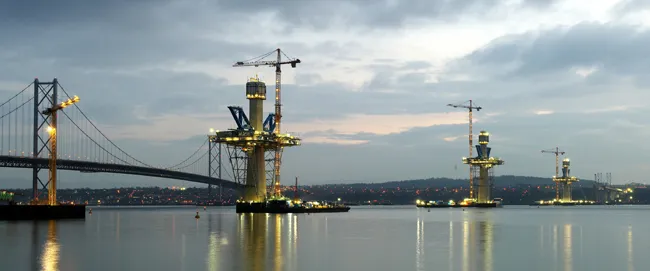
UK construction and infrastructure business Galliford Try is reviewing its construction business with a view to downsizing.
“The review will reduce the size of the construction business, focusing on its key strengths in markets and sectors with sustainable prospects for profitability and growth, where we have a track record of success,” the company said in a written statement.
“The board anticipates that this review will result in reduced profitability in the current year reflecting a reassessment of positions in legacy and some current contracts and the effect of some recent adverse settlements, as well as the costs of the restructure. The single largest element relates to the Queensferry Crossing joint venture, which has recently increased its estimated final costs on the project,” the statement noted.
Galliford Try was part the consortium including
The three-tower cable stayed bridge was built alongside the existing Forth Road Bridge and carries the M90 motorway across the Firth of Forth between Edinburgh, at South Queensferry, and Fife, at North Queensferry. The final cost came in at £1.35 billion (€1.56 billion).
Galliford also said that it is assessing its work and costs on the completed Aberdeen Western Peripheral Route. “The board expects that the outcome of this assessment will reduce the group's full year post‐exceptional profit before tax by £30-40 million (€35-46 million) below the current consensus analysts' forecast.”
The contract for
The estimated cost in 2009 was up to £395 million (€457 million) but rose to around £745 million (€862 million) by 2016. The collapse of Carillion and some issues with concrete helped push the final price tag to over £1 billion (€1.15 billion), according to media reports.
Galliford’s announcement to cut back its construction division comes after the company appointed Graham Prothero as chief executive last month. Prothero, who joined the company as finance director in 2013, takes over from Peter Truscott who said he is leaving to pursue other opportunities. Prothero’s career includes finance director at Development Securities and as a partner at







